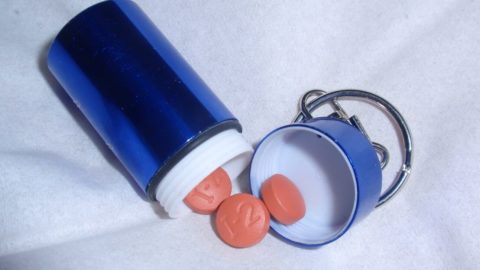We’re going to talk about Robert Kennedy today. Here’s the tweet announcing his nomination. Here’s reaction from PhRMA and BIO. I haven’t seen anything from the American Hospital Association or AHIP, though I’m curious.
STAT has a great roundup reactions reaction from inside the industry.
Nine Thoughts:
First, an apology. I said that Cost Curve would be off today unless there was an HHS secretary nomination announced. I put that out in the universe, and I’m sorry. There is other news popping in our world — it’ll be a red-letter day for 340B — but I’m holding all of that until Monday. It’s all Kennedy today.
Second, this is a newsletter about biopharma economics and policy, not public health. But that doesn’t mean that I don’t care deeply about the topic.
I don’t like to let the mask slip, but I can’t let this pass without comment: the Robert Kennedy nomination, regardless of whether he is ultimately confirmed, is an enormous and dangerous blow to the public health at home and abroad.
Third, the best summary of Kennedy’s broader view on government regulation, beyond his wackadoo take on vaccines and his other conspiratorial thinking, comes from a Kennedy op-ed in the Wall Street Journal two months ago. That’s the closest thing I can find to a Rosetta Stone on what his plans might be. It’s probably required reading at this point.
Fourth, I’m not a politics guy, but it’s been noted that the Senate HELP committee, which will oversee the nomination process, currently has two of the more centrist Republicans serving on it. I don’t know if that makes this whole enterprise more likely to end in farce, but I sure hope so.
Fifth, Kennedy is going to be bad for innovation and bad for the industry as a whole. Companies with vaccine-heavy portfolios are down in trading today, but the broader biotech index is taking a hit, too. The drug industry is built on the scientific process, and putting a guy with a clear disdain for that process in charge of the FDA and NIH is not going to end well.
He’s interested in getting rid of user fees, which pretty much enable the FDA to function, and wants to look at DTC advertising. Agency IQ had a good overview of what Kennedy might to do the FDA a couple of weeks ago.
Sixth, Kennedy seems to be a champion of internal reference pricing. This is how he put it in his WSJ piece: “Level the playing field for Americans internationally on drug costs. Today in Germany, Ozempic costs less than a tenth of what it does in the U.S. because while Berlin negotiates prices on behalf of all Germans, Washington can’t do the same. Legislators should cap drug prices so that companies can’t charge Americans substantially more than Europeans pay.”
It’s worth noting that the Kennedy WSJ op-ed ran in early September when Trump was still a reference pricing supporter. Trump walked away from the idea in October. It’s hard to tell if Kennedy’s position here is deeply held or if he was just pandering.
Seventh, a lot of the other politics of drug pricing and policy revolve around the HHS oversight of the Affordable Care Act, Medicaid, Medicare, etc. As KFF’s Larry Levitt noted yesterday, Kennedy’s views there are a “mystery.”
It’s not hard to imagine a couple of scenarios for what Kennedy’s approach might be. In one, he focuses all of his efforts on his pet issues and puts standard-issue, experienced folks in charge of CMS, leaving them to their own devices. And there’s probably a scenario where he installs some sort of loyal dilettante to “shake things up” or somesuch, leading, quite naturally, to a certain level of chaos.
Eighth, if Kennedy serves as Secretary of HHS, new dimensions around value in health care are going to emerge. I’ll go into more detail on this on Monday, but — taken as a whole — Kennedy’s positions are going to accelerate a trend in which patients will have to determine what health care products and services they’ll pay for … and how they’ll pay.
That means that conversations about the “value” of biopharma interventions are going to have to go broader, get louder, and reach more people. If the nomination goes through, making those things happen will be at the core of my work with clients in 2025.
Ninth, lest anyone start treating this as mere politics: measles cases are up 20% worldwide, per the WHO yesterday. This isn’t a game.





